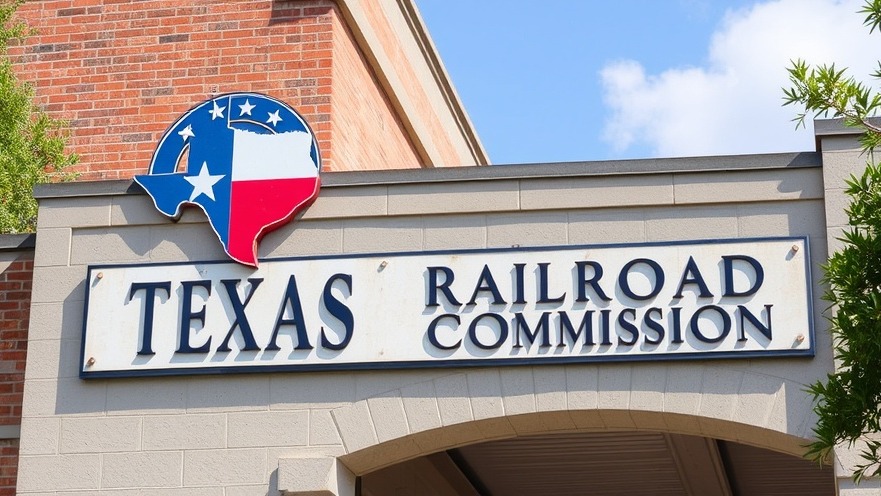
Democratic Rep. Jon Rosenthal Sets Sights on Texas Railroad Commission
State Representative Jon Rosenthal, a four-term lawmaker from Houston, has announced his candidacy for the Texas Railroad Commission, marking a significant change in his political trajectory. Instead of seeking re-election to the Texas House, Rosenthal is pivoting his focus toward an agency that plays a pivotal role in regulating the state’s oil and gas industry. His engineering background in the industry lends credibility to his aspirations, allowing him to position himself as a knowledgeable candidate who can impact crucial energy policies.
An Uncommon Role
The Texas Railroad Commission, established in the 1890s, has evolved beyond its original purpose of regulating railroads to focus on the energy sector — from oil and gas extraction to waste management. With three elected members serving staggered six-year terms, the commission oversees essential operations that greatly affect the Texas economy. Under Rosenthal's leadership, the commission could adopt a more accountable and transparent approach, addressing the long-standing criticism of close ties between commissioned members and the industries they regulate.
Bringing Accountability to the Railroad Commission
In his candidacy announcement, Rosenthal said, “I’m running for Texas Railroad Commissioner to bring accountability and common-sense solutions to an agency that desperately needs both.” His approach resonates with voters who are concerned about energy regulation and the influence of lobbyists in Texas politics. Transparency and integrity in governance have become increasingly important to many Texans amid ongoing dialogues about economic reform and public safety.
A Changing Political Landscape
Rosenthal faces a competitive race, especially considering the presence of incumbent Republican Jim Wright, who is also vying for re-election. Political analysts are already speculating on the impact of Rosenthal's experience on his campaign against Republican candidates. Notably, the dynamics of the 2026 elections will reflect shifts in Texas voter sentiments, particularly among those disillusioned with current energy policies and lobbying influences that often overshadow public welfare.
The Role of Energy in Texas Politics
Energy remains a significant issue in Texas politics, with the state often caught in the midst of debates over climate change, regulatory reform, and energy independence. Rosenthal's campaign highlights the need for a commissioner who understands both the technical and policy aspects of the industry, aiming to serve the best interests of Texans rather than entrenched corporate interests.
Future Predictions for Texas Elections
As Rosenthal prepares to navigate the political landscape leading up to the 2026 elections, he represents a growing faction of Democratic candidates willing to challenge Republican incumbents. His unique perspective as both a lawmaker and an oilfield mechanical engineer could strategically position him in a state where energy plays such a crucial role in the economy. Voter engagement will be essential; thus, Rosenthal's focus could catalyze broader discussions about energy policies and public accountability in Texas.
Decisions Impacted by this Information
For voters, understanding the significance of the Texas Railroad Commission and its impact on daily life is critical. With energy costs, environmental issues, and job security tied to commission regulations, the decisions made in elections like this directly affect Texans. Rosenthal's platform aims to resonate with constituents seeking progressive change in a traditionally conservative space.
Call to Action
As the run-up to the 2026 elections approaches, Texas residents have an opportunity to engage with candidates like Jon Rosenthal, who are committed to transparency and service in public office. Staying informed can empower every Texan to participate actively in shaping a future that prioritizes accountability over corporate influence. Join local discussions and consider how you can support candidates striving to represent the public interest first and foremost.
 Add Element
Add Element  Add Row
Add Row 



Write A Comment